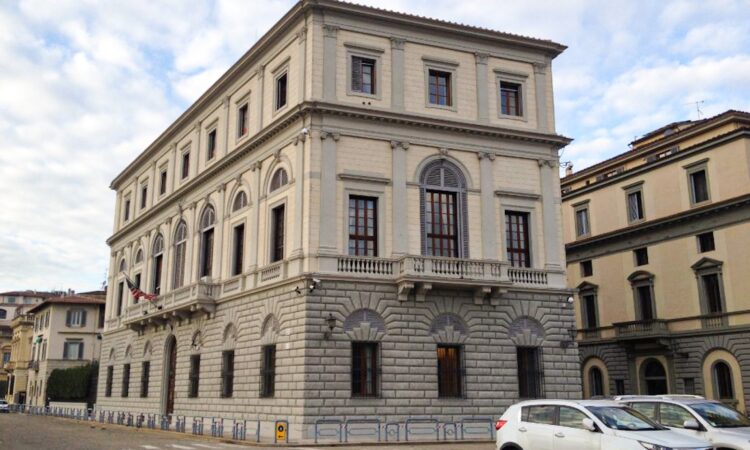The U.S. Consulate in Florence could be among the diplomatic offices targeted for closure as part of the Trump administration’s effort to downsize the State Department. According to Politico, the administration is planning significant reductions in diplomatic missions worldwide, which may include the closure of consulates in Florence, Rennes, Lyon, Strasbourg, Bordeaux, Düsseldorf, Leipzig, Hamburg, and Ponta Delgada.
The initiative is part of a broader restructuring aimed at reducing the scope and reach of U.S. diplomacy. The Trump administration, with strong backing from Secretary of State Marco Rubio and a new Department of Government Efficiency led by Elon Musk, is prioritizing a more transactional foreign policy. This approach focuses on immediate U.S. economic and security interests rather than traditional diplomatic initiatives such as democracy promotion, human rights advocacy, and scientific collaboration. Politico reports that the administration has requested that various government agencies rank U.S. embassies and consulates based on their strategic importance, with a significant number facing potential closure or downsizing.
While no official decision has been confirmed, the possibility of losing the Florence consulate has raised concerns among local officials and community leaders. The consulate, established in 1819, is one of the oldest U.S. diplomatic missions in Italy and serves a vast jurisdiction encompassing Tuscany, Emilia-Romagna, and San Marino. It provides consular services to over 6.5 million residents, including 85,000 American permanent residents, and supports the 70 American universities in the area and their 18,000 students. San Marino, in particular, has a substantial American expatriate community, with 3,000 dual nationals among its 33,000 residents.
Beyond its consular functions, the U.S. Consulate in Florence is a crucial diplomatic hub, maintaining direct engagement with local authorities, universities, and businesses. It plays a key role in fostering U.S.-Italian economic ties, particularly through American companies operating in Tuscany. Over 200 American businesses are present in the consulate’s jurisdiction, employing approximately 45,000 people. Among them, Baker Hughes, headquartered in Florence, stands out as the largest private employer in Tuscany, with a workforce of around 5,000 employees.
The closure of the consulate would likely create significant disruptions in diplomatic and business relations. It would also affect the large number of American students who rely on its services, from visa assistance to emergency support. Additionally, the consulate’s political-economic section helps maintain crucial links with local governments, businesses, and institutions, supporting collaborative projects and international agreements.
This move comes at a time when the U.S. is facing growing competition from China, which has been expanding its diplomatic presence worldwide. Critics argue that shutting down consulates like the one in Florence could weaken American influence in key cultural and economic regions. Former senior State Department official Tom Shannon warned that such cuts “will dramatically shrink the ambit of American diplomacy, rolling it back to pre-World War II levels.”
Florence’s Mayor, Sara Funaro, strongly opposed the prospect of closure: “Democracy is built on international relations, and consulates are a fundamental instrument of this. We do not want the U.S. Consulate in Florence to close. It would be an unjustifiable decision, given the historic presence of the American consulate in our city and the close relationship between our communities. Florence has a long tradition of strong ties with the United States, as demonstrated by the presence of numerous American institutions and universities. We are the second city in Italy for study-abroad programs, hosting thousands of American students each year. A closure would be detrimental to American citizens as well.”
As the State Department reviews its global diplomatic footprint, the future of the U.S. Consulate in Florence remains uncertain. With strong local opposition and ongoing discussions in Washington, the decision in the coming months will determine whether Florence continues to serve as a vital link between the United States and Italy or becomes another casualty of the administration’s cost-cutting measures.
Discover more from Florence Daily News
Subscribe to get the latest posts sent to your email.

